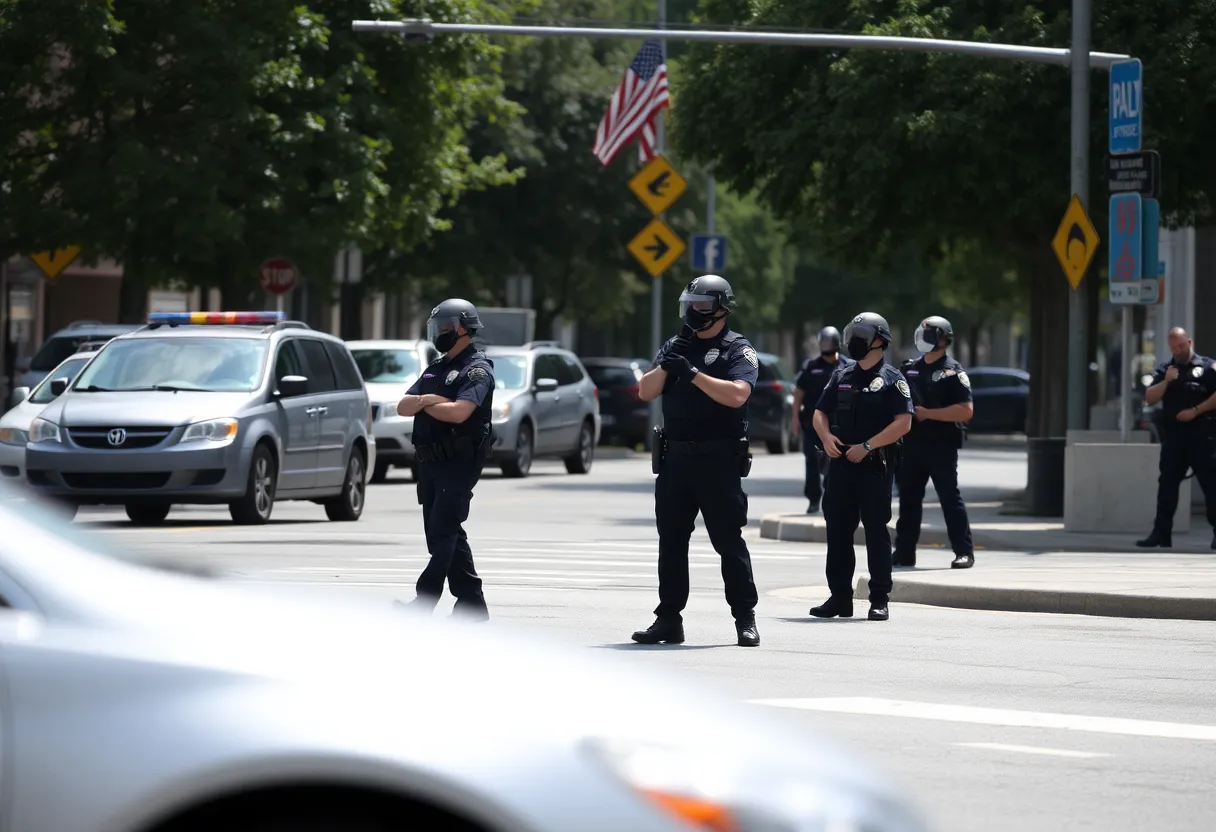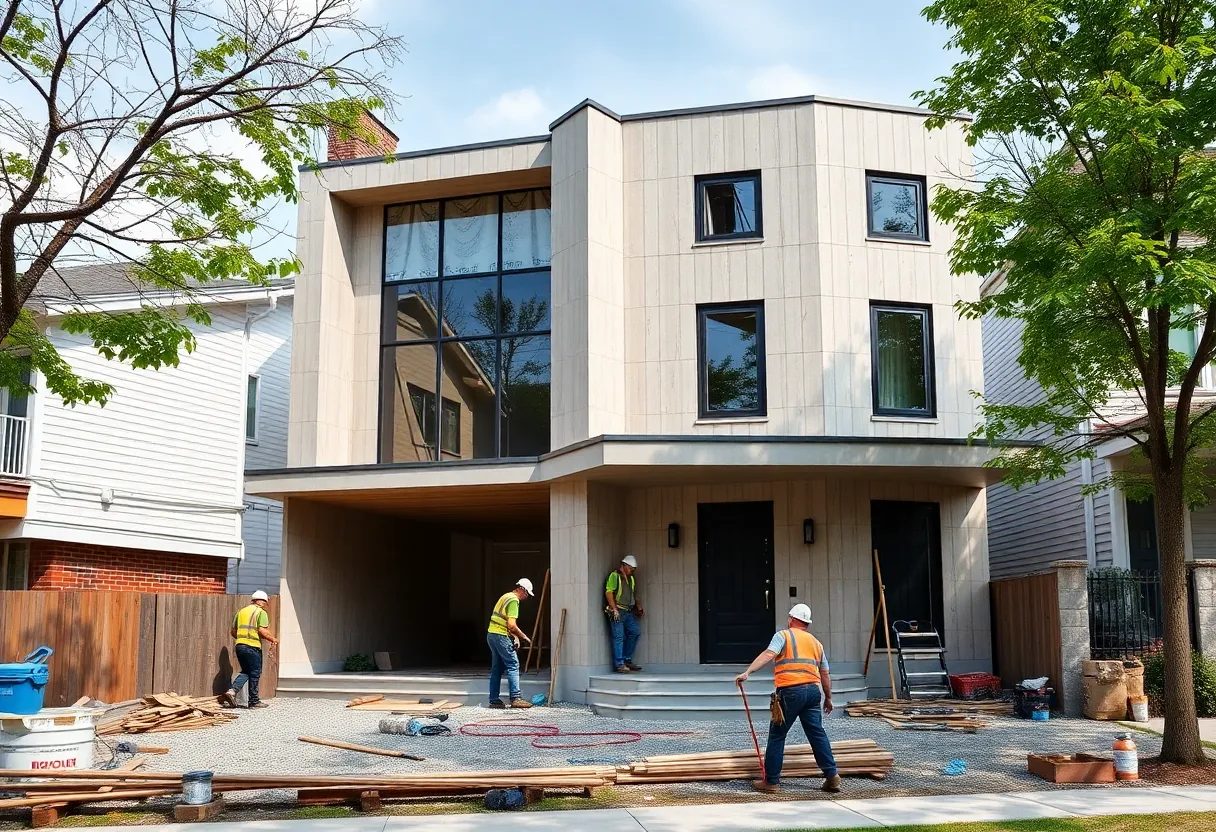News Summary
President Donald Trump has threatened to federalize the Washington D.C. police department if the city does not cooperate with ICE regarding undocumented immigrants. This warning follows Mayor Muriel Bowser’s directive to halt assistance to ICE, raising questions about public safety and local vs. federal law enforcement dynamics. During a recent federal takeover of the police department, arrests related to immigration enforcement surged, igniting controversy over the prioritization of federal immigration policies over local crime issues. The dispute underlines the ongoing tension between local governance and federal authority in law enforcement.
Washington D.C. – President Donald Trump has threatened to re-federalize the Washington D.C. police department if the city fails to cooperate with U.S. Immigration and Customs Enforcement (ICE) in matters related to undocumented immigrants. This warning comes on the heels of Mayor Muriel Bowser’s decision to halt the Metropolitan Police Department’s (MPD) assistance to ICE, which she described as problematic.
Trump’s remarks were made shortly after the expiration of a 30-day federal takeover of the MPD, an initiative he initiated amid assertions of a crime wave in the capital. During this takeover, National Guard troops and federal agents were deployed, and their presence remains in the city.
Post on Truth Social, Trump expressed that if the MPD ceased cooperation with ICE, he anticipated that “crime would come roaring back.” This statement underscores the administration’s position that collaboration between local law enforcement and federal immigration officials is crucial for maintaining public safety.
In response to the federal government’s actions, Mayor Bowser indicated that the MPD would no longer assist ICE, emphasizing that “immigration enforcement is not what the MPD does.” This stance will be maintained even after the emergency measures have concluded. Bowser previously issued an executive order to establish a so-called “emergency operations center,” although this directive notably excluded any mention of ICE.
Bowser’s administration believes that federal agents patrolling the city has contributed to a decrease in violent crime, indicating a somewhat contentious relationship between local governance and federal oversight in law enforcement. Despite claims of rampant crime in Washington D.C., statistics suggest that violent crime rates have reached 30-year lows, leading to questions about the necessity and impact of Trump’s recent federal actions.
An analysis revealed that around 40% of the over 2,300 arrests made during the federal takeover were related to immigration enforcement. This raises concerns about the extent to which local policing efforts are being diverted towards federal immigration priorities rather than addressing local crime issues.
Trump’s emergency takeover of the D.C. police was implemented through a clause in the Washington D.C. Home Rule Act but was not extended by Congress upon its expiration. Bowser’s executive order mandated cooperation with several federal law enforcement agencies, including the U.S. Marshals Service and the FBI, but explicitly excluded ICE from this cooperation.
Despite Trump’s claims that his policies have transformed D.C. into one of the safest cities, which stands in stark contrast to Bowser’s characterization of a “violent criminal takeover,” the reality appears to indicate a different trend regarding violent crime rates in the district.
House Speaker Mike Johnson has indicated that Congress would not support extending the federalized police force beyond the initial 30-day period, signaling a potential end to this approach for now. Furthermore, Trump intends to send National Guard troops to other cities, including Memphis, Tennessee, as part of a wider crime-fighting strategy, suggesting that the federal presence in local law enforcement may expand in alertness to perceived crime issues across the nation.
This ongoing dispute highlights the complex relationship between local and federal authorities regarding law enforcement, particularly in the context of immigration and public safety policies in Washington D.C.
Deeper Dive: News & Info About This Topic
HERE Resources
Washington, D.C. Sees Crime Decline Amid Controversial Federal Policing Tactics
Trump Threatens to Federalize D.C. Police Amid Immigration Dispute
Water Line Break Forces Closure of Westside High School
Trump Administration Launches Law Enforcement Surge in D.C.
Trump Announces National Guard Deployment to Memphis
Washington, D.C. Faces Major Traffic Disruptions for Half Marathon
Economic Strain in Washington D.C. Amid Rising Unemployment
National Guard Troops Remain in Washington, D.C.
Burbank Football Game Canceled Due to Social Media Threat
Local Business Owners Split on National Guard Presence in D.C.
Additional Resources
- NBC News
- Wikipedia: Washington, D.C.
- The Guardian
- Google Search: Trump national emergency Washington DC police
- WTOP
- Google Scholar: Trump federalize D.C. police
- Axios
- Encyclopedia Britannica: D.C. police
- USA Today
- Google News: Trump federalize D.C. police

Author: STAFF HERE WASHINGTON DC
The WASHINGTON DC STAFF WRITER represents the experienced team at HEREWashingtonDC.com, your go-to source for actionable local news and information in Washington, DC, and beyond. Specializing in "news you can use," we cover essential topics like product reviews for personal and business needs, local business directories, politics, real estate trends, neighborhood insights, and regional news affecting the area—with deep expertise drawn from years of dedicated reporting and strong community input, including local press releases and business updates. We deliver top reporting on high-value events such as the National Cherry Blossom Festival, Kennedy Center Honors, and the Washington Auto Show. Our coverage extends to key organizations like the Greater Washington Board of Trade and Destination DC, plus leading businesses in government contracting and technology that power the local economy such as Lockheed Martin and Amazon. As part of the broader HERE network, we provide comprehensive, credible insights into the dynamic landscape of the Washington metropolitan area.




